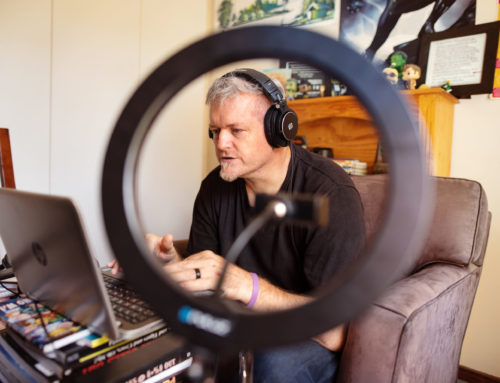so i guess in some small part it was thankx to a stalkery type australian girl that me and tbV started thinking about what we eat and then started No-Meat-Thursdays which has actually been quite a rad extension of our lives and only occasionally interfered with ‘normal’ life – so every Thursday we don’t eat meat just as a small small step in terms of meaning one-day-a-week’s less meat needing to be there i guess and i know a bunch of okes from enGAGE and maybe wider around have joined in as all so maybe soon we will have saved our first cow and can celebrate with a spit braai… okay maybe not.
but the point is that God put us in charge of this planet and gave us dominion over the animals and the fishes and so on and we have largely stuffed it up largely cos of selfishness and greed as is usually the case when we are talking about us and the stuffing-upness of life… so we have not done as we should and it is up to us as Jesus-followers to be involved in that – well it’s up to everyone really, but Jesus-followers have it as part of their mandate and i guess this is an area which is always viewed as separate from the church, often because a number of the people calling it to our attention are a bunch of nut jobs (lets be honest and yes that’s a generalisation but only because it is generally true – not ‘all’ but ‘a number of’ and usually the ones that shout the loudest and are thus more visibly seen).
a second thing me and tbV eventually started doing is recycling. a bit. in that i’m not sure we know exactly how to do it or if we’re doing it right but we have a container outside our back door for glass and one for cardboard and one for cans and one for plastic and we keep stuff separate from general garbage and stick it in there and we finally discovered a place in town (at the BP incidentally) where we can drop it off and did our first drop off the other day (after months of collecting and not knowing where to drop off)
so it’s not much for sure, but it’s something – one day of not meat and a bunch of recycling – it can be a little bit of a mission (going to braais on Thursdays and driving to town with bags of crap) but it is necessary and this is an area where i do think the church needs to get a lot more involved.
starting with you and what are you doing?






Hey there Brett. I remember having a conversation with someone about buying free-range eggs. He said that it was silly, because if he did that, he’d have to buy free-range chicken, and then organic fruit and veg, and then organic meat, and it was all too expensive, so he didn’t buy the eggs. Although I can see his point – those products do cost more, I thought it was pretty silly of him not to start somewhere. We started with the eggs, and have gradually added other more ‘earth-friendly’ foods into the diet. (free-range chicken, organic canned beans and tomatoes, organic milk). We just adjusted our spending elsewhere accordingly to fit those things in because they were important to us. We don’t have a specific meat-free day, but we don’t feel the need to eat meat every day either. I would rather pay a little extra for meat that wasn’t abused and pumped full of who-knows-what-growth-chemicals while it was alive and only eat it twice a week even.
We’re very fortunate that where we live we have an official curbside recycling scheme. Every household is issued with 2 wheelie bins – one for general rubbish and the other for recycling. They collect the recycling every second week. That has made it much easier to make it part of our daily life to recycle things that can be recycled.
Something else we do (or rather don’t do) is maybe not so much a ‘save the planet’ issue, as a human rights issue. About 4 years ago, after reading a book called “I still have more questions than answers” by a UK Vineyard Pastor named Matt Hyam, we gave up eating chocolate (in fact anything containing cocoa) unless it was certified fairtrade. It was a bit of an odd decision to many people around us, and at first I remember finding it very hard. So many people make chocolate things for dessert if they invite you for dinner, and most cafes have very few non-chocolate options if you’re out for a coffee with someone and fancy a nibble on the side. We didn’t want to get preachy about it, but we had to eventually tell everybody one way or another that we couldn’t eat it. One of our friends (I think it was the free-range egg man of earlier) tried to convince us that he’d already paid for it, so we should just eat it, but that’s not the point. We found it very difficult to find chocolate to begin with, but now one of our supermarket chains carries a fairtrade brand, which I think is a very positive sign. It means more people have been asking for it. To begin with I often wondered what difference 2 people really made, and maybe it was silly, but now I’m glad I stuck to it. Last year, another friend of mine told me that she had given up non-fairtrade chocolate too, after hearing a radio broadcast about human-trafficking. She remembered me telling her about it, it didn’t make much impact, but the seed was planted. This friend does admin at our church, and now she’s arranged for the church to have locally-sourced fairtrade coffee, and she’s working on finding decent fairtrade tea as well. So slowly, the idea that there are people who suffer daily so we can eat kit-kats and drink nice coffee is being circulated, and hopefully will make more people think about it.
Didn’t quite mean for this to be so long, sorry.
It was so weird for me to read your blog as for so long I have been throwing out cans and feeling soooo guilty doing so. This year I decided to start recycling with integrity and now also have a container at my back door for cans and will certainly find one for plastic too (have been recycling paper for ages but know it is not enough). So thanks for your blog – God is speaking…
Hi,
I understand the meat issue, though I am not so agreed with it that I would only buy free range products. But I do not understand the cans and plastic issue…? And what about the whole carbon footprint jazz coz if we’re expecting Jesus to come back and the rapture etc and we trust that God is kinda controlling it all to keep us alive til He decides it’s the end then why?
hey Debbie
in Genesis God gives mankind the mandate to rule over the animals and look after the planet – God is a lot more whole-istic than the church has made Him out to be in that He is looking to redeem all of creation (popular theme of NT writers as well) and so it is part of our duty, regardless of whether He comes back now or in 1000 years to look after the planet and undo as much of the neglect and damage as we can – the relationship between man and nature was one of the four relationships that was damaged when the fall happened in Eden [God and man, man and mankind, man and the family, and man and nature]
so it is completely necessary.
Hi Brett,
Where does it speak about these relationships in the Bible?
hey Debbie
there is no specific verse that deals with each of the foour but we know that when man sins he breaks relationship with God and is thrown out of the garden, we see the curse put on him/woman/snake that affects man and nature (Genesis 3 i think) and man and woman (the family) and the very next story is Cain killing Abel (family and society) and so they are inferred rather than stated but each one of them is a thread throughout the Bible as is Gods plan for the whole of creation.
Yeah makes sense. Well, I’ll give it some thought!
Thanks 🙂
Hey Brett. This is some really awesome stuff — thanks! I think these are issues of righteous living that have been waaay too long neglected by the Christian community, so thanks for being one of the first to start raising awareness.
Apart from those mentioned by you guys, here are two further ways in which I think recycling/eating less meat/’going green’ is significant for Christians:
1. As Brett mentioned, traditionally it’s been the secular world who’s been making all the noise about these issues. Why has going green bypassed the Christian community for so long? You may want to argue that’s it’s because Christians have bigger fish to fry, more urgent matters to attend to, like — oh, I don’t know — the salvation of mankind, or whatever (is that even an excuse??), but the fact remains that these are issues — MORAL issues — that matter to a lot of non-Christians. Now, when a non-Christian sees himself as living up to moral standard x (because he recycles, buys organic produce, drives a fuel-efficient car, blah blah) and sees his neighbourhood Christian as living sub-x (because he couldn’t be bothered to recycle)…what is that non-Christian going to think of the Christian when he gets all preachy on him? My point is this: as much as we ‘live only for an audience of one’, non-Christians can’t be expected to give us the time of day when we want to share the gospel with them, if they don’t see us matching (and exceeding) their moral standards. “I have become all things to all people so that I could save some of them in any way possible.” (1 Corinthians 9:22b) Yes, this is only a pragmatic argument for why Christians should live greener lifestyles, but if my not recycling is what’s standing in the way of somebody coming to know God, then driving to the BP with a bootful of junk every two weeks is a very, very small sacrifice to make.
2. The ‘double-standards’ argument. Emma brought this up, and I’ve certainly had conversations like the one she mentioned. Anti-recyclers/anti-free rangers/anti-greeners (redders? :/) seem to argue something like this: “Why would you recycle? Who are you kidding! You know you drive a fuel-guzzling car, right?!” Or: “Why preach free-range eggs? You know dairy cows are kept in similar conditions to battery hens, so if you tell people not to eat battery eggs, then you also have to tell them to stop drinking milk.” Of course, nobody wants to be a hypocrite, but I think this double-standards argument has missed the point. I would rather risk the accusation of double-standards and do some good (by, say, recycling, even though I don’t drive a fuel-efficient car) than have perfectly consistent standards, but do no good at all.
Here’s why I think this is significant for Christians. Not one of us is perfect; each and every one of us falls short of God’s glorious standard (you can’t be a Christian unless you acknowledge this!); we are but sinners saved by grace. (Praise God!) Does this mean I give up trying to live as holy a life as possible? Or that, because I don’t live as I know I should all the time, I should throw in the towel and hand myself over to depravity? No! Of course not. I keeping trying. So, even though I (like all Christians) have double-standards in the sense that I know I should be living to a holy standard, yet I fall short, this doesn’t mean I should sit back on my spiritually fat butt and wait for Jesus to fetch me. And the same should be said of going green. I do a lot, but I’m yet to give up non-fair trade choc and coffee (thanks, Emma, for the challenge!). So, call me (us) double-standarded, but I (we) do more good than those with consistent standards who sit around doing nothing for fear of having double-standards.
So, do what you can and what you feel convicted to do. (If you feel guilty every time you throw a can in the bin, this is a good sign that you’re doing something wrong!) Most importantly, humble yourself before God, and ask him to show you how your lifestyle should be adjusted so that we can start meeting the secular world’s green challenge.
i like. good thorts. especially “if they don’t see us matching (and exceeding) their moral standards.” and especially the bit in brackets of that.
Cool.
I dunno about saving the planet though coz you’d only feel the need to save the planet if you believed all that the scientists have brainwashed society with. Since I do not believe in global warming and reducing our carbon footprint etc I don’t see why I should recycle?! Coz even if it was true, there’s pretty much nothing we puny humans can do about it except continue to throw our money at the government through ‘energy saving’ nonsense.
i think it all fits in under love God, love your neighbour – recycling saves money and resources – cut down less trees etc etc – to make the planet safer and nicer for the next generation etc so mandate of God firstly but tied in with love. it is getting hotter and weather conditions are going crazy around the world so don’t know on what basis you don’t believe that stuff cos it’s pretty obvious i think. if everyone made the little (puny) difference they could make then collectively it would become a huge difference – problem is too many people saying what difference can i make and so doing nothing and so making no difference.
Debbie, one car (just one) doing the daily drive to work and back is not going to destroy the planet. But, as you know, bajillions of cars doing this everyday is going to cause (and has caused) a very serious problem. Likewise, one li’l old recycler is not going to undo this problem, but enough green-minded people can.
yeah like i hear ya and i get what you’re all saying but i still don’t believe it because i studied science in uni and found that this heating up of the earth is part of a cycle… it always heats up like this then cools down loads then heats up loads then cools down loads. it’s a cycle. it’s been happening since the beginning of time! this is not new. just suddenly, someone decided the the world is heating up and global warming and we’re all gonna die!!! but we’re not. at least not from this. it’s normal. it’s just so easy to fool the ignorant person into believing it if they haven’t studied it you know? and that’s pretty much what i think is happening here.
love your neighbour i totally agree with and i take your point. otherwise i still see no reason to believe it.
Hi Debbie. I must admit, I haven’t made my mind up as to whether I actually believe in global warming or not. I too studied science, and if you believe the earth is 4.5 billion years old, then you can clearly see that there is a cycle to these things. On the other hand, if you take the Bible as plain truth, and believe that the earth is only a few thousand years old, then it’s clear to me that it’s getting hotter. So I really don’t know where I stand with that personally.
BUT, I think that whether one believes in global warming or not, there’s no reason to squander the resources we have. There’s nothing pretty about seeing communities living on rubbish heaps, that aren’t getting any smaller. Allowing toxic sludge to creep into waterways and spraying potatoes with toxins so powerful that it’s done by a machine and people have to avoid the area for a few days afterwards (see Michael Pollan’s “Botany of Desire”) is not my idea of being a faithful steward of the earth. A few generations ago, people would have been appalled at what we throw away and treat as disposable. True, they mostly had financial reasons for being frugal and reusing/recycling what they could, but just because you can afford to be wasteful, doesn’t necessarily mean you should.
Just another thought.
Cool. Quite a true point.
I appreciate that. Will ponder it some more!